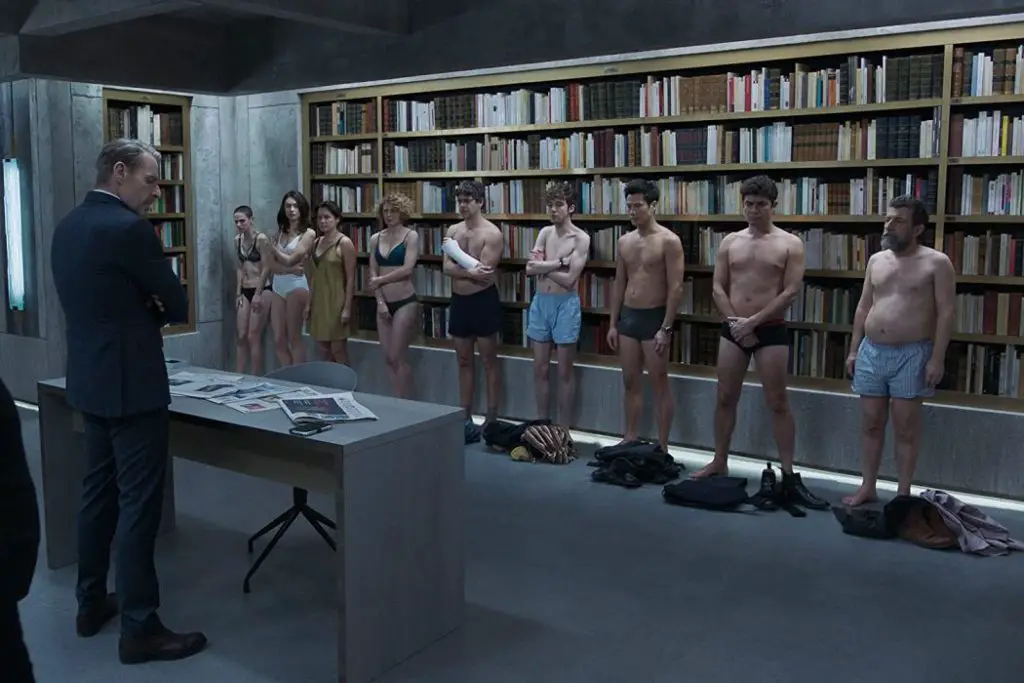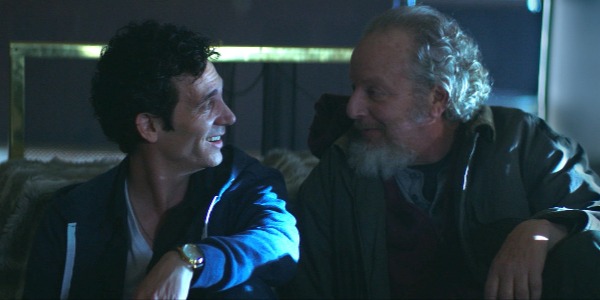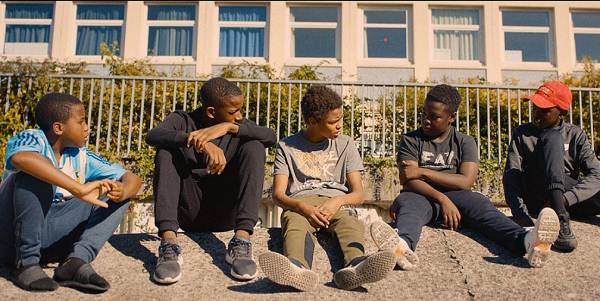Glasgow Film Festival 2020 Round-Up

Former film student from Scotland turned writer and film reviewer.
The Glasgow Film Festival has ended for another year. As the nights get lighter the buzz has begun to fade ever so slightly. The line-up has been terrific this year; audiences have seen a panoply of varied and exciting films from filmmakers new and old, from horrors to comedy to drama to a melting pot of genre blends. Just about everything was covered. Before the Festival rides off into the sunset, however, here below are just a few of the screenings that were on offer this year.
Vivarium (Lorcan Finnegan)

Lorcan Finnegan’s bizarre horror-satire skews the typical suburban conformity that awaits most middle-class families; playing like an odd mix of David Lynch, Charlie Kaufman, and, perhaps, a subtle nod to the kind of anodyne, toothless suburbia that drove Kevin Spacey mad in Sam Mendes’ American Beauty, the Irish director’s second feature expands on his short movie Foxes and invokes a claustrophobic, fever-dream parable which might leave the viewer scratching their head at the end.
Gemma and Tom (played by Imogen Poots and Jesse Eisenberg) are a young couple looking to purchase their first home together. They pay a visit to a real estate agent (played with immense, wide-eyed creepiness and plastic smiles by Jonathan Aris) who takes them to the oddly picturesque housing estate of Yonder, complete with identical coloured houses and impossibly perfect shaped clouds all in neat rows. It’s completely disorienting and unsettling from the first and Gemma and Tom can’t wait to get away. However, escaping from Yonder and its Utopian idyll is much more difficult than they imagined.
The sinister twists come thick and fast: Tom and Gemma are given a child to raise and told that if they do so then they will be released from this perfectly manicured labyrinth. The couple experience some of the typical dynamics of child-rearing while doing so; Tom retreats into his work (in this case ‘work’ is digging a hole in the garden that may provide some kind of escape), while Gemma is left to raise the child alone, feeling emotionally abandoned by Tom and confused about the needs of the rapidly growing child they’ve been given charge of.
You feel a sense of what Finnegan wants to convey here: a starkly sinister parable of the dehumanisation of suburbia seen through the lens of absurdist sci-fi genre tropes (at one point there’s a suggestion that this whole thing is an alien experiment). Unfortunately, though, Vivarium is a little one-note – finding itself with not entirely much to say beyond that initial observation. Instead, the film seems to run out of steam halfway through and descends instead into a sort of cannibalism of its own ideas, abandoning the mind-rotting suburban scape for a late third act Twilight Zone-style twist that feels completely jarring compared to what came before.
Vivarium clearly wants to satirise suburban lifestyles and everything that encapsulates – sleepless nights dealing with crying children, monotonous routines where each day bleed into another, the escape into work, the inherent pointlessness of it all – while also gradually turning up the notch on the strangeness until it reaches a brain-melting crescendo which doesn’t quite feel like the sum of its parts. For fans of Lynchian theatrics, this is definitely one to watch but more casual viewers may find themselves completely turned off.
Les Traducteurs (The Translators) (Régis Roinsard)

Much more fun was Régis Roinsard’s excellently plotted whodunit Les Traducteurs. Think Agatha Christie crossed over with a bilingual dictionary and you might be close to this stylish thriller, replete with a handsome ensemble cast of multinational actors from all over Europe. Les Traducteurs is packed with twists and turns, red herrings and reversals, and executed with a meticulous sense of pacing. While its multilingual style may put off cinemagoers who dislike even one foreign language (and with Parasite‘s recent Oscar success the hope is that those people are now lesser and lesser), fans of clever whodunits like Rian Johnson‘s recent success Knives Out will surely find something to love here.
Set in the stylish world of publishing, Les Traducteurs sees Angstrom Publishing about to release the final instalment in their Millenium-style trilogy Deadalus. Angstrom CEO Eric (played dripping with suaveness and arrogant as all hell by Lambert Wilson) decides to simultaneously release the book in several different languages at once, figuring that he can conquer all major territories before anyone has a chance to translate the book for free
. To do this he hires several translators, some of whom occupy a kind of stereotypical niche for their country: Dario the handsome yet c*cky Italian (Riccardo Scarmarcio), the philosophical, socialist Greek Konstantinos (Manolis Mavromatakis), the wild Portuguese punk Telma (Maria Leite), the languid, disinterested Englishman Alex (Alex Lawther), the melancholic Dane Helene (Sidse Babett Knudsen), the nervy, stuttering Spaniard Javier (Edouardo Noriega), the quietly pragmatic Chinese man Chen (Frédéric Chau), the strict, vigilant German Ingrid (Anna-Maria Sturm), and the beautiful yet damaged Russian femme fatale Katerina (Olga Kurylenko).
Each of these translators is kept in a windowless underground bunker and given ten pages a day to translate in time for publication day. Eric cracks the whip and tensions rise as the translators face a race against the clock to get the work done in time. However, when the first ten pages of the book leak online, it’s clear there is a traitor in the midst and Eric will stop at nothing to find them. This leads to strip-searches, lockdowns, and finger-pointing as the claustrophobia sets in. But is there more to this than meets the eye?
Roinsard does an excellent job of keeping the viewer guessing, employing a number of tricks such as flashbacks and flash-forwards, narrative re-framing, and enough hints and clues to keep you trying to piece everything together up until the big final reveal – a clever, twisty denouement that only that most hardened of whodunit experts will see coming. It is all tremendous fun, if not exactly the most thought-provoking piece of cinema you’ll ever see. Yet it never feels as though this is what Les Traducteurs is going for: it is a purely enjoyable, visceral thrill of a movie that doesn’t reward deeper analysis and might require just a little more suspension of disbelief than you might usually give.
Its message is pretty clear, taking aim at the immorally corporatised publishing houses and their negative effect on the art of literature, but this is essentially just an aside – a background motif for what is a surface level movie in so many ways. If you can set that aside, however, Les Traducteurs is an extremely enjoyable thriller with an excellently stylish execution.
James vs His Future Self (Jeremy LaLonde)

Quirky time travel comedies are few and far between; a trap these movies often fall into is in explaining the machinations of the time travel itself and getting too twisted in semantics to make an enjoyable movie. This isn’t a trap James vs His Future Self falls into. From the start, James is far less interested in time travel than it is about human connection and experience. This is a movie brimming with heart and charm, with some excellent turns by producer Jonas Chernik, Cleopatra Coleman, and Daniel Stern, the latter clearly relishing his role of the curmudgeonly time traveller.
The eponymous James is a physicist obsessed with making time travel possible, to the extent he neglects everything else in his life. His potential relationship with fellow physicist Courtney (Coleman) is going nowhere, stalled completely by James’ total lack of effort in engaging with her, and his oft-neglected sister Meredith (Tommie Amber-Pirie) is fast losing her patience with a brother who refuses to acknowledge their parents’ death.
Everything changes when a mysterious stranger (Stern) appears, telling James he is his future self and that he has to avoid making the mistakes that left him miserable in life. James is told by his future self that he needs to live in the moment more often and declare his feelings for Courtney, and so the hapless physicist tries to balance his desire for time travel with a need to avoid the future literally standing in front of him.
James vs His Future Self has been covered on Film Inquiry already so little more needs to be said here, but Jeremy LaLonde’s movie is a fun blend of sci-fi, comedy, and critique of the modern relationship to identity; it doesn’t always stick the landing in an attempt to balance these disparate elements but is certainly worth looking out for.
Les Misérables (Ladj Ly)

Ladj Ly’s incredible firecracker of a film is a postmodern look at poverty and immigration through the lens of a housing project in Montfermeil, a place where Victor Hugo once wrote about his own Misérables. Again, it has been covered on Film Inquiry, so not much more depth is needed here.
Les Misérables, based on the own short film of the same name and expanded with the same actors and characters, is gritty and explosive, wasting no time in establishing its intent from the first frame – a sort of ironic celebration of France’s World Cup win in 2018. Ly infuses his movie with the same kind of social realism that calls to mind films such as Training Day, Jacque Audiard’s Palme D’or winner Dheepan, or shows like The Wire. Another obvious influence is La Haine, the 1995 Mathieu Kassovitz film which Ly himself cited as a big influence on Les Misérables. It’s easy to see the comparisons; the streets are rough and filmed with a docu-style realism which thrills during the action set pieces and in particular leaves you breathless in the final moments.
Where Les Misérables really shines is in the simmering moments; watching as the tensions slowly rise between the cops and the kids on the streets, witnessing the barely contained racism of French gipsies as they go toe-to-toe with young Black men, observing Stephane (Damien Bonnard) a new cop on the beat, learn about power structures both on the street and within his own unit. The strongest moments come when Ly allows the pace to slow down and let the audience question what’s going to happen next and whose side they might be on.
Finally, the jaw-dropping denouement – coming after another slow build-up and barrelling recklessly towards catastrophe – is a masterpiece of cinematography and finally lights the fuse of the powder keg it had been building up to all along.
Les Misérables isn’t without its faults – a bizarre subplot involving a lion cub occasionally threatens to upend the film’s sombre tone, and there could be an argument made that it may be more effective to examine the racial and religious divides on a smaller-scale – but there can be no denying that Ly’s debut feature is a breathless, exhilarating ride which will have you thinking about it long after the credits roll.
Till Next Year
And so the Festival is over, leaving its audience with many memories for another year. The Festival is already beginning to prepare for next year and, as always, there is a palpable excitement about what they may bring to our screens next time around.
Have you seen any films at the Glasgow Film Festival this year? Let us know what you thought of them in the comments below!
Does content like this matter to you?
Become a Member and support film journalism. Unlock access to all of Film Inquiry`s great articles. Join a community of like-minded readers who are passionate about cinema - get access to our private members Network, give back to independent filmmakers, and more.













